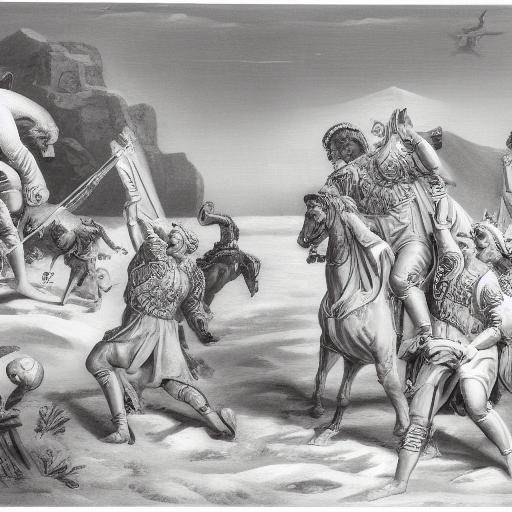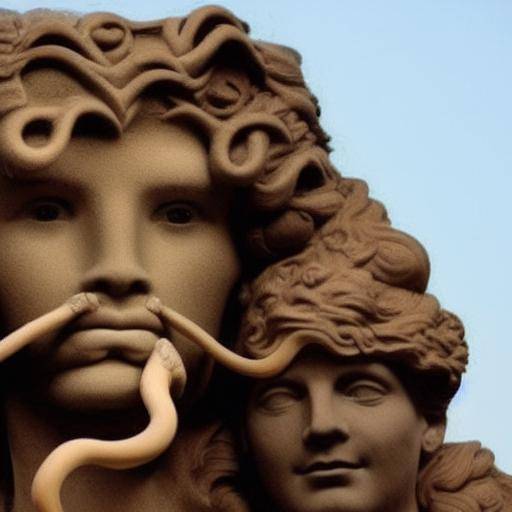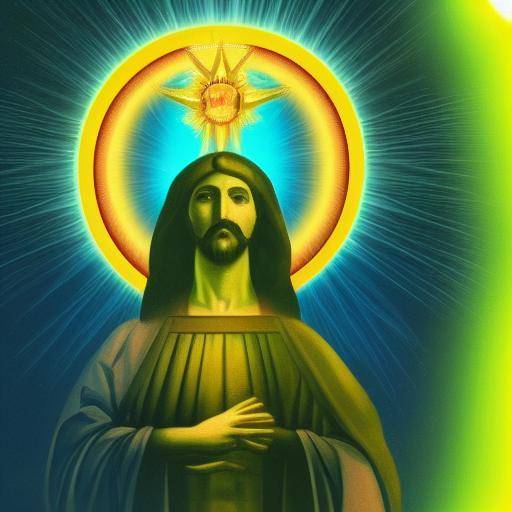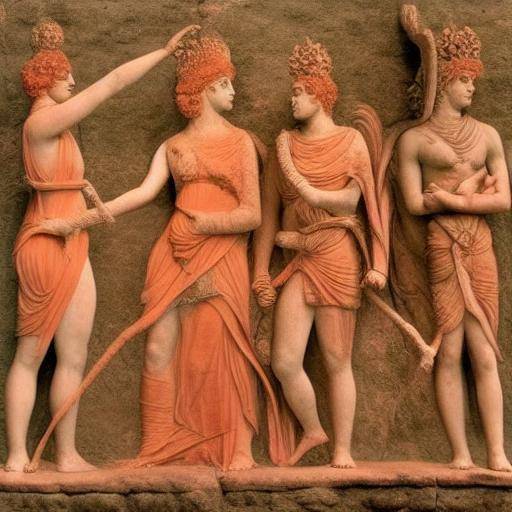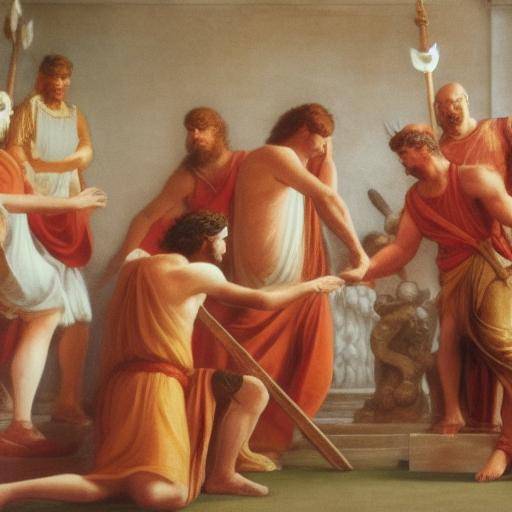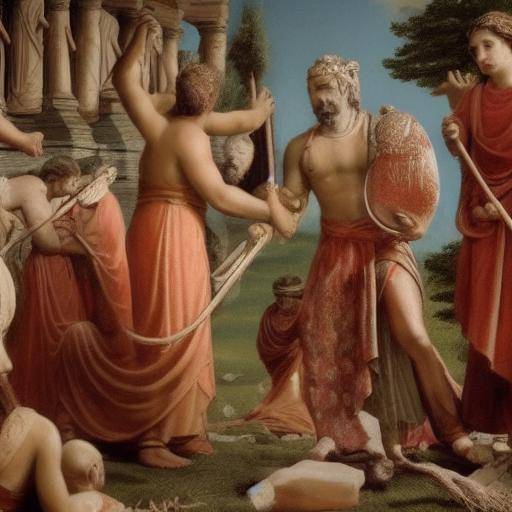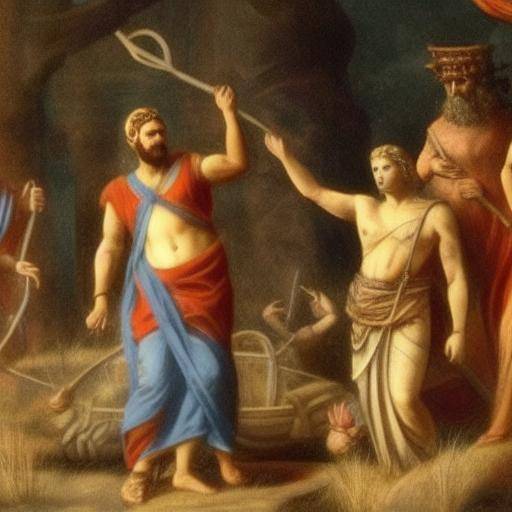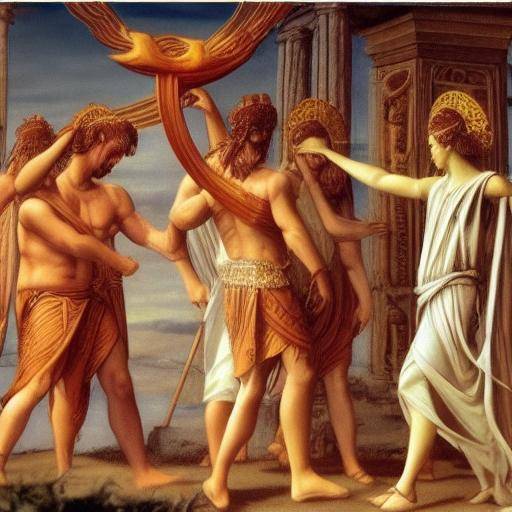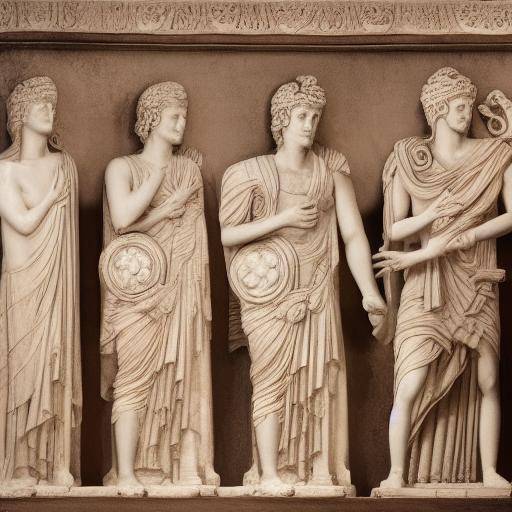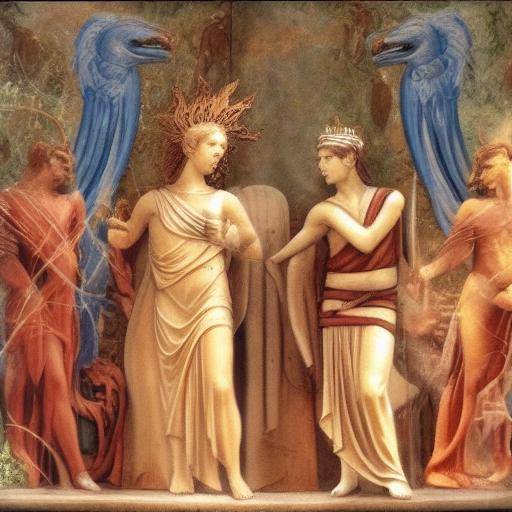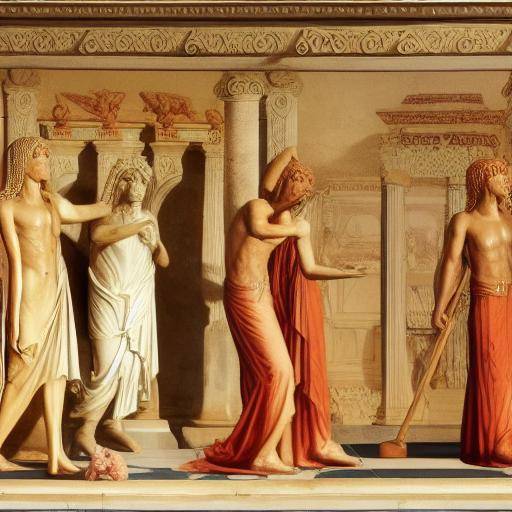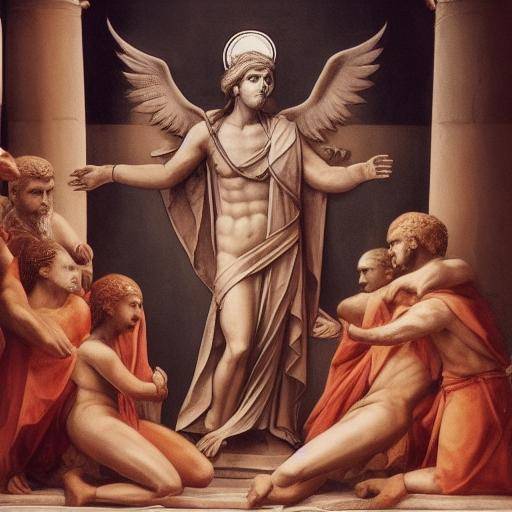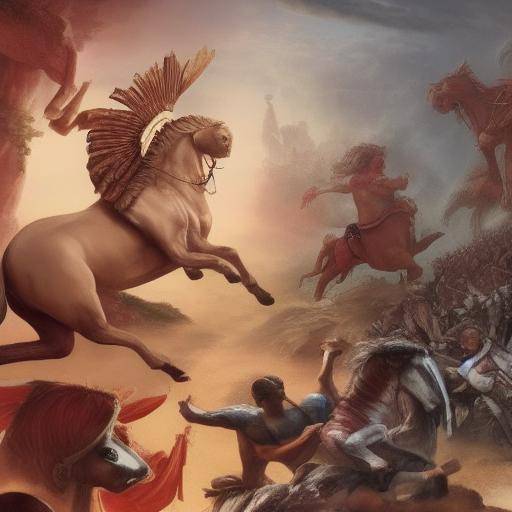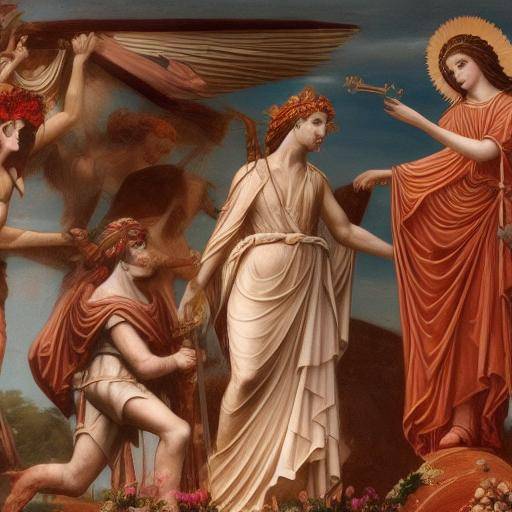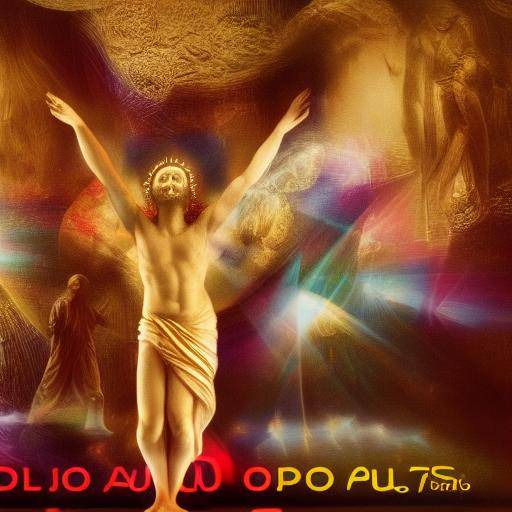
Introduction
Greek mythology is full of gods and goddess who personify fundamental aspects of life and nature. One of the most emblematic gods of this rich tradition is Apollo, the god of light, music, poetry, art and prophecy. His fascinating history and influence in the ancient world continue to be the subject of study and admiration today. In this article, we will explore in depth the myths and relevance of Apollo, as well as its role as god of light and how it intertwines with Greek mythology, offering a detailed look through various aspects, from its history to its connection with other deities and its impact on our contemporary culture.
History and Background
Apollo's story goes back to ancient Greece, where he was venerated as one of the twelve Olympic gods, being the son of Zeus and Leto. His birth was surrounded by intrigues and challenges, as his mother had to flee and take refuge on the island of Delos to give birth to Apollo and her sister twin Artemisa. This feat marked the beginning of Apollo's influence on Greek mythology.
Apollo soon became a multifaceted god, associated with light, truth, healing and arts. His main symbol was the laurel, and was attributed to the creation of the lira, a musical instrument that accompanied him in his famous recitals of poetry and music. His duality as a god of light and music made him an exceptionally important figure in both the Olympic pantheon and the everyday life of the Greeks.
Analysis in Deep
The Light of Apollo in Greek Mythology
The presence of Apollo as a god of light was fundamental in Greek mythology. He was seen as the bearer and protector of light, symbolizing truth, clarity and spiritual enlightenment. His relationship with the Sun, represented by the brilliant aureola that emanated from his head, directly linked him to vital energy and spiritual perception. This connection made it a symbol of divine power and guidance for mortals.
Music and the Arts
Apollo was also acclaimed as the pattern of the arts, especially music, poetry and art in general. His musical and poetic gifts manifested in his ability to inspire artists, give prophecies and act as mediator between gods and humans. His participation in musical contests and his ability to heal through music made him a venerated and admired figure.
Comprehensive review
The influence of Apollo as a god of light and music extends to multiple areas of Greek mythology. Her interactions with other gods, such as her sister Artemisa and her beloved Dafne, add depth and complexity to her character. The myth of Dafne, who was transformed into laurel to escape the harassment of Apollo, highlights both his love and his protective aspect of nature.
Comparative analysis
By comparing the figure of Apollo with other gods of Greek mythology, such as Dionisio, the god of wine and fertility, significant contrasts are revealed. While Dionisio represented exuberance and ecstasy, Apollo personified elegance and balance. This comparison shows the richness of Greek mythology and the diversity of the deities that make up it.
Practical Tips and Accessible Recommendations
- Explore classical music and poetry to better understand the influence of Apollo in the arts.
- Visit archaeological sites related to Apollo, such as the Temple of Delphi, to appreciate its historical legacy.
- Investigate the impact of lightning on Greek mythology and how it is reflected in contemporary culture through literary, musical and artistic references.
Conclusions
In short, Apollo, the god of light and music, is a transcendental figure in Greek mythology whose legacy lasts until today. Its influence encompasses multiple aspects, from spirituality to art, and its duality as a bearer of light and pattern of arts makes it a unique and immortal figure. By exploring Apollo's myths, we immerse ourselves in a world of beauty, wisdom and mystery that continues to inspire and enrich our lives in the modern era.
Frequently asked questions
Why is Apollo known as the god of light?
Apollo was considered the god of light because of his association with the sun and his symbolic role as the bearer of truth and spiritual enlightenment.
What is the relationship between Apollo and music in Greek mythology?
Apollo was a consummated musician and poet whose artistic gifts inspired mortals and gave them comfort and joy. It was the pattern of musical and poetic arts.
How did Apollo influence the everyday life of the Greeks?
Apollo was considered a mediator between the gods and human beings, and was invoked in times of illness, doubt or conflict to receive guidance and protection.
What are the main temples dedicated to Apollo?
The most prominent temples were the Temple of Delphi, where the famous Oracle of Delphis was, and the Temple of Apollo in Delphi, both centers of veneration and consultation.
Did Apollo have negative aspects of his personality?
While he was primarily revered for his beneficial gifts, Apollo was also known for his anger and revenge, as illustrated in myths such as Marsians and their disputes with other deities.
How has Apollo's influence on contemporary culture remained alive?
The figure of Apollo has endured through references in literature, music, visual arts and theatre, maintaining its relevance as an eternal inspiration for human creativity.
Through the exploration of Apollo myths, the god of light and music, we have unraveled the complexity and beauty of his legacy in Greek mythology, as well as its impact on our current culture. Its influence as a symbol of light, harmony and creativity continues to be a source of inspiration and admiration, a perennial reminder of the lasting power of ancient traditions in our modern world.




